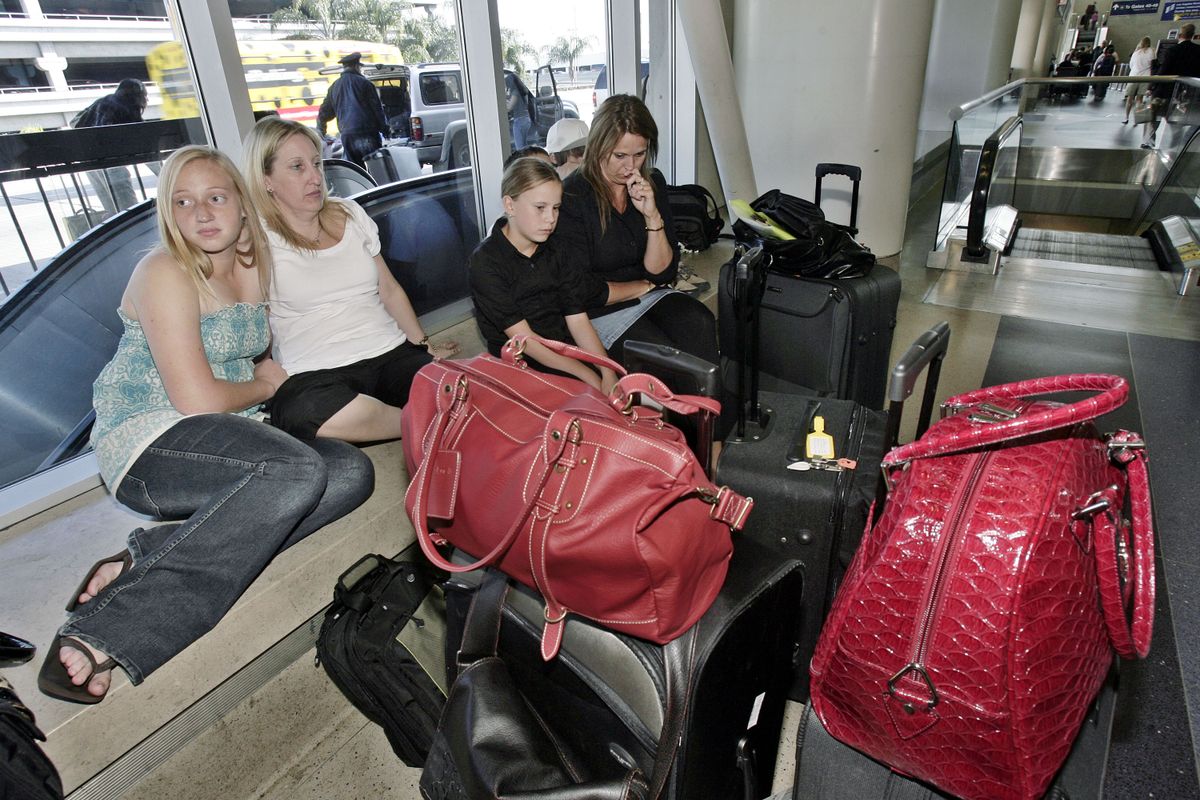AIRLINE FEE FRENZY
Industry embraces a la carte approach to increasing revenues

When oil was at $140 a barrel, Delta Air Lines Inc. slapped a “fuel surcharge” on frequent-flier reward tickets. American, United and US Airways began charging to check a single bag when oil was over $130 a barrel, each blaming fuel costs.
And now that the price of oil – the biggest expense in operating an airline flight – hovers around $100 a barrel, will airline passengers see any fee relief?
Not likely. In fact, UAL Corp.’s United Airlines recently doubled its fee to check a second bag, to $50 one-way.
While some airlines have reduced the fuel surcharges they place on cargo shipments, passengers have yet to see any relief. Airlines say fuel prices remain volatile and still remain significantly higher than just a year ago.
But a bigger change is at work in the airline industry. Airlines have long hoped they could find ways to extract more revenue out of customers than just fares, and this year’s fuel crisis prompted them to ratchet up the push toward charging for different services a la carte.
So far, baggage fees and other charges are significantly improving the usually dismal finances of the industry. Passengers are paying them, if begrudgingly, and aren’t shifting in large numbers to the few airlines that don’t charge fees like Southwest Airlines Co.
Continental Airlines Inc. joined the fee fray earlier this month with a $15 charge to check a first piece of luggage; the company said that fee alone will generate $100 million annually. United said all of its add-on fees could total $700 million next year.
“The concept of charging for what people use or don’t use is something that will probably continue,” said a spokesman for AMR Corp.’s American Airlines when asked about fees and surcharges. Says a spokesman for US Airways Group Inc.: “We have no plans to change any of these.”
Just as free hot meals in coach will likely never fly again on most U.S. airlines, free baggage may indeed be a relic of a bygone era. J.P. Morgan estimates that the new fee structure and other charges airlines have imposed, from selling pillows and bottled water to charging for “free” frequent-flier awards, will add $3 billion a year to U.S. industry revenue. That’s a lot for an industry that has never earned more than $5.3 billion in a year.
“It was only the reality of $140 oil that gave the U.S. industry the courage to pursue a strategy they wanted to pursue,” said J.P. Morgan airline analyst Jamie Baker. “You hold onto it as long as you can until competitive pressures force you to back off.”
US Airways says the pay-for-what-you-use approach amounts to a “business model transformation.” Instead of spreading the cost of baggage handling over all passengers, including those who don’t check bags, the airline thinks it’s fairer to charge bag-checkers for the service. Similarly, US Airways charges $2 for coffee, soda or bottled water, $50 to “process” a frequent-flier travel award to Hawaii and $35 just to buy a ticket in person at the airport.
No matter the price of fuel, President Scott Kirby sees the change as permanent. “The industry is evolving to a more a la carte model,” he said. “Airlines can’t continue to operate as they did.”